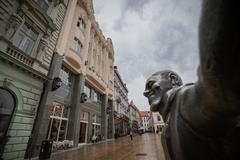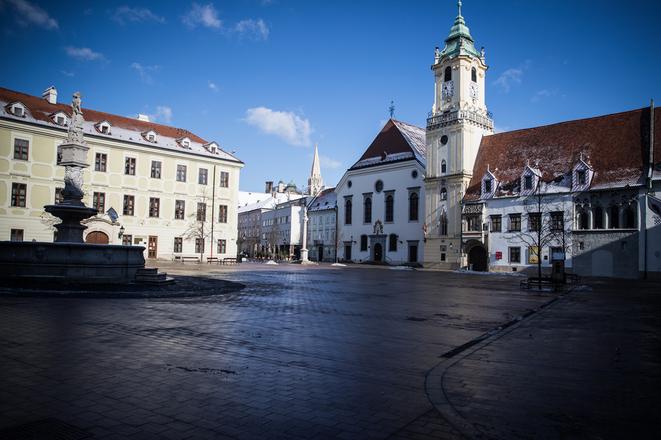Our paywall policy
The Slovak Spectator has decided to make all the articles on the special measures, statistics and basic information about the coronavirus available to everyone. If you appreciate our work and would like to support good journalism, please buy our subscription. We believe this is an issue where accurate and fact-based information is important for people to cope.
When the pandemic situation in Slovakia started deteriorating last September, the cabinet quickly declared a national emergency on October 1, 2020. The emergency was repeatedly prolonged as the second pandemic wave claimed more than 12,000 lives in Slovakia.
The national emergency ended on May 14, 2021.
Since then, Slovakia has followed the regional anti-pandemic measures set by the alert system, known as the Covid automat.
The automat's updated version was implemented in August. One rule to be applied in districts in the worst situation (i.e. those in the dark red and black tier) is a curfew and a ban on travel between districts.
To do so it is necessary to declare a national emergency again, which politicians seem to be hesitant about.
Politicians more cautious now
PM Eduard Heger (OĽaNO) even said that his cabinet will not declare national emergency until the end of this year when commenting on the deteriorating pandemic situation, on a political talk show broadcast by TV Markíza on September 26.
Health Minister Vladimír Lengvarský (OĽaNO nominee) does not want to declare an emergency either, but he admits that the anti-pandemic measures can be toughened up.
“We don't want to limit people or to declare a national emergency,” he said during a political talk show broadcast by the TA3 news channel.
Municipalities cannot restrict movement
Though there are no black-tier districts at the moment, there are five in the dark-red tier: Bardejov, Krupina, Rožňava, Skalica and Stará Ľubovňa.
According to the valid automat rules, a curfew lasting between 21:00 and 5:00 of the next day should be imposed. A national emergency is then necessary. Lengvarský said that municipalities can decide on restricting movement at the local level even without a national emergency.

Municipalities were quick to respond that this is not in their powers, and even Ombudswoman Mária Patakyová supported the statement.
“I'm sure that in the current situation, there is no (…) legal basis to ordering a curfew until a national emergency is re-introduced,” Patakyová wrote in her statement.
In practice, even though the Covid automat is counting on curfew and the restriction of movement, a curfew cannot be applied without a national emergency, and no one can be fined for being out in the evening or travelling between districts even in the dark-red and black tiers.



 Bratislava during the lockdown, February 2021 (source: Archive of Sme)
Bratislava during the lockdown, February 2021 (source: Archive of Sme)